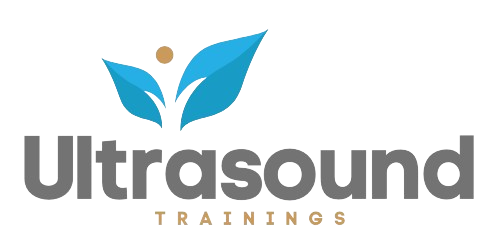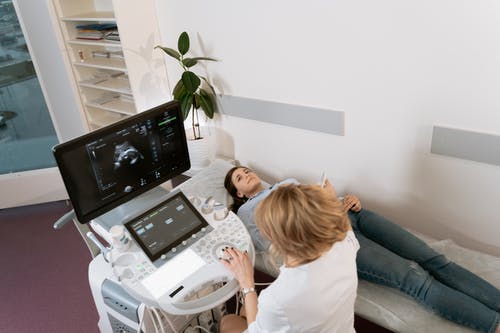In the ever-evolving field of healthcare, diagnostic imaging has become an essential tool for patient care. Ultrasound technology, in particular, plays a vital role in diagnosing conditions across various medical specialties, including obstetrics, cardiology, emergency medicine, and more. For nurse practitioners, midwives, physician assistants, and doctors, having ultrasound training and certification can significantly enhance their ability to provide high-quality, accurate care.
If you’re a healthcare professional looking to expand your skill set or incorporate ultrasound into your practice, understanding the ultrasound certification process is key. In this blog post, we’ll walk you through what you need to know about ultrasound training certification, how to get certified, and why certification is crucial for professionals in the field.
1. Why Ultrasound Certification is Important
For many healthcare professionals, adding ultrasound training to your skillset can provide numerous benefits. Certification in ultrasound training is not only a way to enhance your diagnostic abilities but also to improve patient care. Here’s why certification is so important:
1.1 Increased Diagnostic Accuracy Certified ultrasound professionals are trained to perform accurate, high-quality imaging that plays a critical role in diagnosing and monitoring a variety of conditions. Whether you are assessing fetal health, evaluating the heart, or detecting abdominal conditions, ultrasound allows for real-time, non-invasive insights into the body.
1.2 Expanded Career Opportunities By obtaining ultrasound certification, healthcare providers open up new career opportunities. Many practices, hospitals, and clinics seek professionals who are trained in ultrasound to enhance patient care. Having ultrasound skills gives you an edge in the competitive healthcare job market and can increase your earning potential.
1.3 Better Patient Outcomes With the ability to use ultrasound technology to diagnose conditions early and monitor patient progress, certified healthcare professionals are better equipped to deliver high-quality care. Ultrasound allows for timely interventions, improving patient outcomes and reducing the need for more invasive procedures.
1.4 Legal and Regulatory Compliance In some states and healthcare settings, there are legal or regulatory requirements that mandate healthcare professionals to be certified in ultrasound before using the technology. Certification ensures compliance with these requirements and enhances the overall quality of care you provide.
2. Who Should Get Ultrasound Certified?
While ultrasound training and certification can benefit any healthcare professional, it is particularly valuable for those who work in direct patient care and frequently need to perform diagnostic imaging. If you are a nurse practitioner, midwife, physician assistant, or doctor, ultrasound training can elevate your clinical practice and provide your patients with more immediate, accurate diagnoses. Here’s why ultrasound certification is useful for specific roles:
2.1 Nurse Practitioners (NPs) As primary care providers, nurse practitioners are often the first point of contact for patients. By becoming certified in ultrasound, NPs can perform diagnostic imaging, helping them assess conditions and make informed decisions about treatment. Whether it’s assessing fetal health or evaluating vascular issues, ultrasound enhances your ability to provide holistic care to your patients.
2.2 Midwives For midwives, ultrasound training is especially beneficial in obstetrics. Being able to perform ultrasounds to monitor pregnancy and fetal development is an invaluable skill for midwives. It can help identify any complications early, such as fetal growth restriction or abnormal positioning, allowing midwives to provide more comprehensive care during pregnancy and delivery.
2.3 Physician Assistants (PAs) Physician assistants often work closely with physicians to assess and treat patients. Ultrasound certification allows PAs to perform in-depth assessments across a range of specialties, including obstetrics, cardiology, musculoskeletal, and emergency medicine. It enhances your ability to conduct diagnostic imaging and provide immediate results, making you an integral part of the healthcare team.
2.4 Doctors For doctors, ultrasound certification can be especially helpful in emergency or specialized medicine, where quick diagnostic decisions are critical. Physicians in fields such as cardiology, musculoskeletal, obstetrics, or emergency medicine can utilize ultrasound to guide treatment decisions, improving diagnostic accuracy and patient care.
3. The Ultrasound Certification Process
3.1 Step 1: Enroll in an Accredited Ultrasound Training Program The first step to becoming ultrasound certified is completing an accredited ultrasound training program. These programs provide the foundational knowledge and hands-on experience you need to become proficient in ultrasound technology. Depending on your prior healthcare experience, you may choose a program designed for those with a healthcare background or one that offers a broader introduction to ultrasound for beginners.
3.2 Step 2: Complete Required Clinical Hours Most ultrasound certification programs require healthcare professionals to complete a certain number of supervised clinical hours. These clinical hours give you hands-on experience using ultrasound machines and interpreting images. Clinical experience allows you to work with real patients, under the guidance of trained professionals, ensuring you develop the necessary skills to perform ultrasound exams confidently and accurately.
3.3 Step 3: Pass the Certification Exam Once you’ve completed your training and clinical hours, the next step is to pass a certification exam. The certification exam typically consists of both written and practical components, testing your knowledge of ultrasound physics, anatomy, and clinical applications. The exam will also assess your ability to operate ultrasound equipment and interpret images.
3.4 Step 4: Maintain Certification After obtaining ultrasound certification, it’s important to maintain your certification through continuing education and recertification exams. Many professional organizations, such as the American Registry for Diagnostic Medical Sonography (ARDMS) or American Institute of Ultrasound in Medicine (AIUM), require ultrasound professionals to stay up-to-date with the latest advancements in technology and practices through periodic renewal and continuing education.
4. Ultrasound Certification Organizations
There are several recognized organizations that offer ultrasound certification, including:
- American Registry for Diagnostic Medical Sonography (ARDMS): ARDMS is one of the most widely recognized certification bodies in the United States, offering certifications in various specialties, including obstetrics, cardiology, and musculoskeletal imaging.
- American Institute of Ultrasound in Medicine (AIUM): AIUM provides ultrasound certifications and continuing education opportunities for healthcare professionals, particularly in obstetrics, gynecology, and musculoskeletal imaging.
- Cardiovascular Credentialing International (CCI): For healthcare professionals specializing in cardiac and vascular ultrasound, CCI offers certification in these specific areas.
5. Benefits of Ultrasound Certification for Healthcare Professionals
5.1 Enhanced Skills and Knowledge Ultrasound certification programs provide healthcare professionals with comprehensive training, ensuring they acquire both theoretical knowledge and practical skills. This makes you more effective in diagnosing conditions and improving patient care.
5.2 Increased Job Satisfaction and Confidence As a certified ultrasound professional, you’ll have more confidence in your ability to perform ultrasound procedures and interpret results. This leads to greater job satisfaction, as you’ll be providing patients with high-quality care and contributing to improved clinical outcomes.
5.3 Greater Job Opportunities Having ultrasound certification opens doors to a variety of job opportunities in hospitals, private practices, outpatient clinics, and diagnostic imaging centers. Many employers prefer to hire professionals who are already certified, as this ensures they have the necessary expertise to perform ultrasound exams and improve patient care.
5.4 Competitive Advantage in the Healthcare Field The demand for healthcare professionals skilled in diagnostic imaging is growing, and ultrasound certification gives you a competitive edge in the job market. As the healthcare industry continues to embrace non-invasive technologies like ultrasound, those who are trained and certified will be well-positioned for career advancement.
Conclusion
Ultrasound training and certification can be a game-changer for healthcare professionals such as nurse practitioners, midwives, physician assistants, and doctors. It enhances your ability to diagnose and monitor various conditions, improves patient outcomes, and opens up new career opportunities. The certification process may require time and effort, but the rewards—both for you and your patients—are well worth it.
At Ultrasound Trainings, we offer comprehensive ultrasound training programs designed to help healthcare professionals gain the skills and certification they need to succeed. If you’re ready to expand your clinical practice and improve patient care, contact us today to learn more about our ultrasound training and certification programs.


